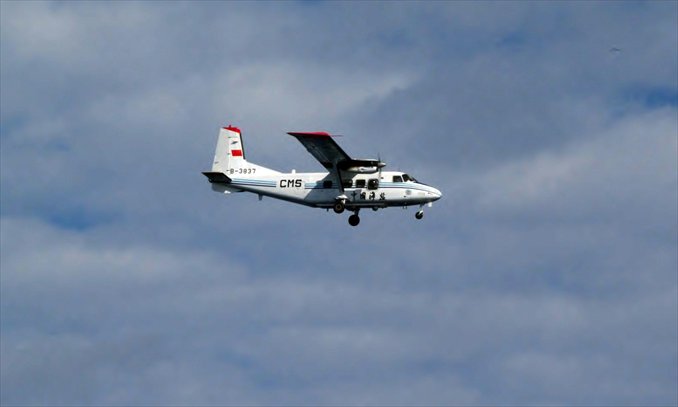Diaoyu Islands dispute enters new stage

A Chinese marine surveillance plane flew over the Diaoyu Islands yesterday, joining the vessels patrolling the islands for the first time. This marks another important step for China in safeguarding the sovereignty of the islands.
Japan's Maritime Self-Defense Forces scrambled nine fighter jets in an attempt to intercept the plane's patrol activities. There was no direct confrontation between the two sides, but Japan showed a hardline stance in its determination to win over China in the Diaoyu Islands dispute.
The dispute has intensified this year due to Japan's provocations. China has adopted a firm approach. In the past, the Japanese Coast Guard has deployed vessels around the islands, and claimed it had "actual control" over them. However, when individual Chinese ships entered the 12-nautical-mile zone around the islands, they were detained by Japan.
This situation has changed. It has become normal for China's marine surveillance vessels to enter the 12-nautical-mile zone. Japan's "actual control" over the islands has gone.
It's hard to evaluate the gains and losses for each side in the wake of yesterday's incident. China's law enforcement efforts over the islands have been extended to a joint force between marine planes and vessels. This is an improvement. It also proves that Japan has prepared for China's air patrols, which shows Tokyo's advantages and determination. Japan didn't lose anything. In general, China has gained the initiative in the dispute, but still faces great challenges.
Japan aggressively used fighter jets to confront China's marine surveillance plane, escalating its provocations against China. Japan claimed it has no intention of worsening the situation in the islands and is willing to resolve frictions with China peacefully, but what it did yesterday sends the opposite signal.
It marks the beginning of China's air surveillance of the Diaoyu Islands. It is necessary to speed up this action and make the patrol a regular move. China needs to warn against Japan's attempt to intercept, or it will result in a response from China, such as sending the air force to the area and reserving the right to take further actions.
An aerial confrontation between China and Japan above the Diaoyu area will have much higher stakes than a standoff of ships between the two. The situation could easily veer into a serious military clash. But if Tokyo keeps on intercepting Chinese patrol planes, such a confrontation is bound to happen sooner or later.
Japan needs to be clear that China will not retreat in the face of its provocations. The Chinese public will not allow such a retreat. A new reality has been formed surrounding the Diaoyu conflict. It is impossible to turn back. Japan has to accept it with rationality.